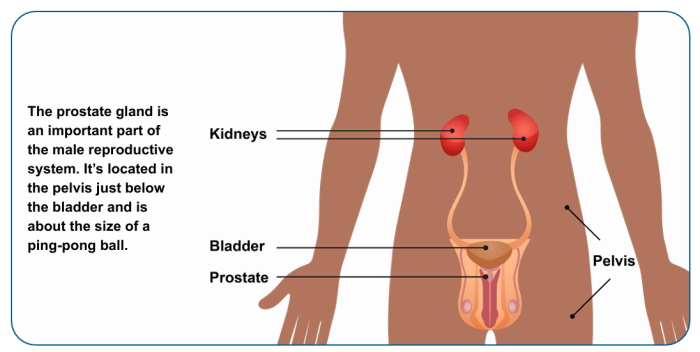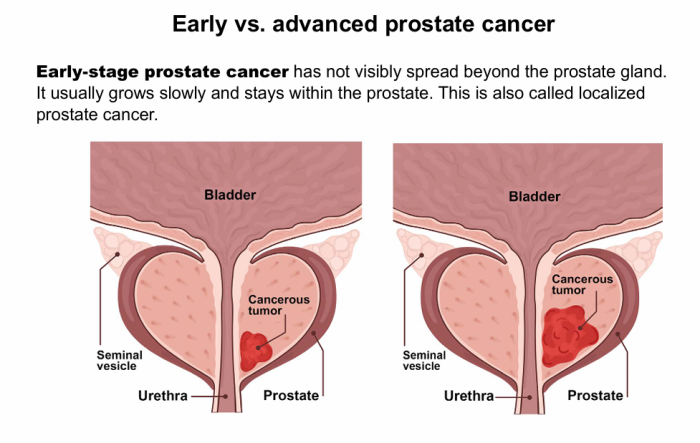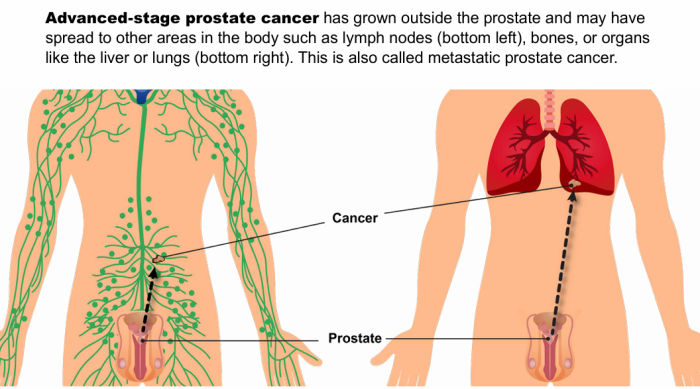Prostate cancer treatment in India offers advanced medical care at competitive costs, starting from ₹2.5 lakh, depending on the procedure and hospital. Top hospitals in cities like Mumbai, Delhi, and Chennai provide state-of-the-art facilities and experienced oncologists. Success rates for early-stage prostate cancer treatments, such as surgery or radiation therapy, often exceed 90%, ensuring effective outcomes for patients. With affordable options and high-quality care, India is a preferred destination for prostate cancer treatment.
At a Glance: Key Takeaways About Prostate Cancer Treatment
Prostate cancer treatment in India offers a combination of affordability, advanced medical technology, and skilled specialists. Patients can choose from surgical, radiation, and targeted therapies based on their condition and preferences.
- Choose surgery when cancer is localized and operable.
- Choose radiation for non-invasive treatment options.
- Choose hormonal therapy for advanced or metastatic cases.
- Choose targeted therapy for precision-based treatment.
- Choose India for cost-effective, high-quality care.
Costs & Factors: Typical Ranges for Treatment in India
What Influences the Cost of Prostate Cancer Treatment?
The cost of prostate cancer treatment in India depends on factors like the type of treatment (surgery, radiation, or targeted therapy), hospital location, and the stage of cancer. Advanced therapies like robotic surgery or proton therapy may increase costs. Additionally, pre-treatment diagnostics and post-treatment care can add to the overall expenses.
Average Price Range Across Indian Hospitals
Prostate cancer treatment in India typically costs between ₹2,40,000–₹6,00,000 (≈ $2,900–$7,250 USD). This range includes surgery, radiation, and other therapies. Premium hospitals in metro cities may charge more, while smaller centers offer lower-cost options. Always confirm inclusions like hospital stay and medications.
Hidden Costs to Consider Before Treatment
Patients should account for hidden costs such as diagnostic tests, follow-up consultations, and medications. Travel and accommodation expenses for international patients can also add up. Discussing a comprehensive cost breakdown with the hospital is essential to avoid surprises.
- Pre-treatment tests: ₹20,000–₹50,000
- Post-treatment medications: ₹10,000–₹30,000/month
- Travel and lodging: Variable
Explore a detailed breakdown of prostate cancer treatment cost in India by visiting our in-depth guide prostate cancer treatment cost in India.
How It Works: Steps & Workflow of Prostate Cancer Treatment
Initial Diagnosis and Staging Process
The diagnosis begins with a PSA blood test, digital rectal exam, and imaging like MRI or CT scans. A biopsy confirms the presence and stage of cancer. Accurate staging helps determine the most effective treatment plan.
Treatment Options: Surgery, Radiation, and More
Treatment options include surgery (radical prostatectomy), radiation therapy, hormonal therapy, and advanced options like targeted or immunotherapy. The choice depends on cancer stage, patient health, and preferences. For localized cancer, surgery or radiation is often preferred.
Post-Treatment Follow-Up and Monitoring
Post-treatment care involves regular PSA tests, imaging, and consultations to monitor for recurrence. Lifestyle changes and rehabilitation may also be recommended to improve recovery and quality of life.

Benefits & Risks: What to Expect from Treatment
Advantages of Early Detection and Treatment
Early detection of prostate cancer significantly improves treatment outcomes. Localized cancer treated early has a high success rate, with many patients achieving remission. Early intervention also reduces the need for aggressive treatments and minimizes complications.
Potential Side Effects and Risks to Be Aware Of
Treatment may lead to side effects like urinary incontinence, erectile dysfunction, or bowel issues. Advanced therapies often reduce these risks but may still carry complications. Discussing potential outcomes with your doctor is crucial for informed decision-making.
- Common side effects: Fatigue, urinary issues
- Rare risks: Infection, bleeding
- Recovery varies by treatment type
Who It’s For: Eligibility & When to Choose It
Who Should Consider Prostate Cancer Treatment?
Prostate cancer treatment is typically recommended for men diagnosed with localized or advanced prostate cancer. Candidates may include those experiencing symptoms like difficulty urinating, blood in urine, or pelvic discomfort. Early detection through regular screenings, especially for men over 50 or those with a family history, can significantly improve treatment outcomes.
When Is Treatment Most Effective?
Treatment is most effective when prostate cancer is detected early, before it spreads beyond the prostate gland. Early-stage interventions, such as surgery or radiation, can offer high success rates. Advanced cases may require a combination of therapies like hormone therapy or chemotherapy to manage the disease effectively. Regular follow-ups ensure timely adjustments to the treatment plan.
Alternatives & When They Fit Better
Non-invasive or less aggressive alternatives to prostate cancer treatment may be suitable for certain patients. Active surveillance is often recommended for older men or those with slow-growing, localized cancer. This approach involves regular monitoring without immediate intervention. Hormone therapy can be an option for advanced cases to slow cancer growth, especially when surgery or radiation is not viable.
Other alternatives include cryotherapy, which freezes cancer cells, and high-intensity focused ultrasound (HIFU), which uses sound waves to target tumors. These methods may suit patients seeking minimally invasive options with fewer side effects. However, they may not be as effective for advanced or aggressive cancers.
- Choose active surveillance for slow-growing cancer.
- Opt for cryotherapy for localized tumors.
- Consider HIFU for non-invasive treatment.
- Use hormone therapy for advanced cases.
Timeline & Aftercare: First 4–12 Weeks
The recovery timeline after prostate cancer treatment varies by procedure. For surgery, patients may need 4–6 weeks to resume normal activities, while radiation therapy may require less downtime. Common post-treatment symptoms include fatigue, urinary incontinence, and mild discomfort, which typically improve over time.
Aftercare involves regular follow-ups to monitor recovery and detect any recurrence. Patients are advised to maintain a healthy diet, stay hydrated, and engage in light physical activity to aid healing. Pelvic floor exercises can help manage urinary side effects. Emotional support and counseling may also benefit patients during this period.
- Follow-up appointments every 2–4 weeks initially.
- Adopt a balanced diet for faster recovery.
- Practice pelvic floor exercises for urinary control.
- Seek emotional support if needed.
How to Choose the Right Provider for Prostate Cancer Treatment
Choosing the right provider is crucial for successful prostate cancer treatment. Look for hospitals accredited by NABH or JCI, as they meet international standards. Experienced oncologists specializing in prostate cancer and access to advanced technologies like robotic surgery or targeted therapy are essential factors to consider.
Additionally, evaluate the hospital’s success rates and patient reviews. Proximity to your location and comprehensive care facilities, including post-treatment support, can also influence your decision. For more information, you can Know More About Chemotherapy.
- Choose NABH/JCI-accredited hospitals.
- Ensure access to advanced treatment options.
- Check oncologist expertise and success rates.
- Consider proximity and post-treatment care.
Latest Updates & What’s Changing in Prostate Cancer Care
Prostate cancer care in India is evolving with advancements in diagnostic tools and treatment methods. Technologies like robotic-assisted surgery and precision therapies are improving outcomes while minimizing side effects. These innovations aim to enhance patient quality of life and reduce recovery times.

Additionally, the integration of immunotherapy and targeted therapies is offering personalized treatment options. These approaches are particularly beneficial for advanced or recurrent cases, providing hope for better management.
- Robotic-assisted surgeries for precision and reduced recovery time
- Targeted and immunotherapy for advanced stages
- Improved diagnostic imaging for early detection
Key Differences: Side-by-Side Comparison
Who Is a Good Fit for Each Treatment Option?
Patients with localized prostate cancer may benefit from surgery or radiation therapy, depending on their age and overall health. Advanced cases often require systemic treatments like hormone therapy or chemotherapy. Robotic surgeries are ideal for those seeking minimally invasive options with faster recovery.
Performance & Outcomes Across Methods
While surgery offers high success rates for localized cancer, radiation therapy is equally effective for many patients. Advanced therapies like immunotherapy show promise in improving survival for metastatic cases. Outcomes depend on cancer stage, patient health, and treatment adherence.
Cost & Ongoing Needs for Different Treatments
The cost of prostate cancer treatment in India varies widely. Surgical options typically range from ₹1,80,000–₹3,60,000 (≈ $2,150–$4,350 USD), while radiation therapy may cost ₹2,00,000–₹4,00,000. Advanced therapies like immunotherapy can be more expensive, with ongoing sessions adding to the cost.
| Dimension |
Localized Treatment |
Advanced Treatment |
| Candidacy |
Early-stage patients |
Advanced/metastatic cases |
| Durability/Effectiveness |
High for surgery/radiation |
Varies by therapy type |
| Medications/Anticoagulation |
Minimal post-surgery |
Ongoing for systemic therapies |
| Recovery Time |
2–4 weeks |
Depends on therapy |
| Risks/Re-operation |
Low for robotic surgery |
Higher for advanced cases |
| Cost |
₹1,80,000–₹3,60,000 |
₹4,00,000+ |
Top Hospitals for Prostate Cancer Treatment in India
India is home to several world-class hospitals specializing in prostate cancer care. Facilities like AIIMS (Delhi), Tata Memorial Hospital (Mumbai), and Apollo Hospitals (Chennai) are renowned for their expertise and advanced technologies. These centers offer comprehensive care, from diagnosis to post-treatment support.

Many hospitals are accredited by NABH, ensuring high standards of care. They also provide access to multidisciplinary teams, including oncologists, urologists, and radiologists, for personalized treatment plans. International patients often choose these hospitals for their affordability and quality.
- AIIMS, Delhi
- Tata Memorial Hospital, Mumbai
- Apollo Hospitals, Chennai
- Fortis Healthcare, Bangalore
- Max Super Specialty Hospital, Delhi
Success Rates and What They Mean for Patients
Prostate cancer treatments in India have success rates of 85–95% for localized cases, thanks to early detection and advanced therapies. For advanced stages, survival rates improve significantly with targeted and systemic treatments, though outcomes vary by individual.

Success rates depend on factors like cancer stage, patient health, and timely intervention. Early-stage patients often achieve full remission, while advanced cases benefit from prolonged survival and improved quality of life. Regular follow-ups are crucial for monitoring and managing recurrence risks.
- 85–95% success for early-stage cases
- Improved survival with advanced therapies
- Timely diagnosis is key to better outcomes
Common Misconceptions About Prostate Cancer Treatment
Many believe that prostate cancer treatment always leads to severe side effects like incontinence or impotence. While these risks exist, advancements in techniques such as robotic surgery and targeted therapies have significantly reduced complications. Another misconception is that surgery is the only option. In reality, treatments like radiation therapy, hormone therapy, and active surveillance are viable depending on the cancer stage.
- Not all treatments cause severe side effects.
- Non-surgical options are available for early stages.
- Advanced technologies improve outcomes.
Emerging Technologies and Innovations in Treatment
Prostate cancer treatment is evolving with innovations like robotic-assisted surgery, which offers precision and faster recovery. Additionally, focal therapies such as cryotherapy and high-intensity focused ultrasound (HIFU) target cancer cells while sparing healthy tissue. These methods are particularly effective for localized cancer.

Another breakthrough is the use of advanced imaging techniques like PSMA PET scans, which enhance cancer detection and treatment planning. These technologies improve success rates and minimize side effects, making treatment more patient-friendly.
- Robotic-assisted surgery for precision.
- Focal therapies like HIFU and cryotherapy.
- PSMA PET scans for accurate detection.
Patient Stories and Testimonials
Patients undergoing prostate cancer treatment in India often share inspiring recovery journeys. For instance, a 62-year-old patient from Mumbai underwent robotic surgery and resumed normal activities within weeks. Another patient from Delhi highlighted the affordability and expertise of Indian oncologists, which made his radiation therapy experience seamless.
These testimonials emphasize the importance of early diagnosis and personalized care. Many patients also appreciate the emotional support provided by multidisciplinary teams, which plays a crucial role in their recovery.
- Quick recovery with advanced techniques.
- Affordable yet high-quality care in India.
- Comprehensive emotional and medical support.
How to Prepare for Prostate Cancer Treatment
Preparing for prostate cancer treatment involves both physical and mental readiness. Patients should undergo all recommended tests, such as blood work and imaging scans, to ensure accurate treatment planning. Discussing potential side effects and recovery timelines with your doctor is also crucial.

Maintaining a healthy lifestyle, including a balanced diet and light exercise, can improve treatment outcomes. Additionally, arranging post-treatment support, such as transportation and caregiving, ensures a smoother recovery process.
- Complete all pre-treatment tests.
- Discuss side effects and recovery with your doctor.
- Adopt a healthy lifestyle for better outcomes.
Frequently Asked Questions About Prostate Cancer Treatment in India: Cost, Top Hospitals & Success Rate
What is the average cost of prostate cancer treatment in India?
The average cost of prostate cancer treatment in India ranges from ₹2,50,000 to ₹7,00,000, depending on the type of treatment and hospital. Factors like the stage of cancer, treatment method, and hospital location can influence the cost. India offers affordable yet high-quality care compared to many other countries.
Which hospitals in India are best for prostate cancer treatment?
Top hospitals for prostate cancer treatment in India include leading multi-specialty and cancer-focused centers in cities like Delhi, Mumbai, and Bengaluru. These hospitals are equipped with advanced technology and experienced oncologists, ensuring comprehensive care for patients.
What factors affect the success rate of treatment?
The success rate of prostate cancer treatment depends on factors like the stage of cancer, patient’s overall health, and the chosen treatment method. Early detection and timely intervention significantly improve outcomes, with advanced treatments offering high success rates.
How long does recovery take after prostate cancer treatment?
Recovery time varies based on the treatment type. Surgery may require 4–6 weeks for recovery, while radiation therapy has a shorter downtime. Individual health and adherence to post-treatment care also influence recovery duration.
Are there any risks associated with prostate cancer surgery?
Prostate cancer surgery carries some risks, such as infection, bleeding, or urinary incontinence. However, with skilled surgeons and modern techniques, these risks are minimized. Discussing potential complications with your doctor is essential.
What are the alternatives to surgery for prostate cancer?
Alternatives to surgery include radiation therapy, hormone therapy, and active surveillance for early-stage cases. The choice depends on the cancer’s stage, patient’s age, and overall health. These options can be effective in managing the disease.
Can prostate cancer be treated without side effects?
While most treatments have some side effects, advancements in technology have reduced their severity. Minimally invasive techniques and targeted therapies aim to minimize discomfort and improve quality of life during and after treatment.
What is the role of radiation therapy in prostate cancer treatment?
Radiation therapy is a key treatment for prostate cancer, especially in early or localized stages. It uses high-energy rays to destroy cancer cells and can be an alternative to surgery. It is often combined with other treatments for better results.
Targeted Therapy
Targeted therapy is a cutting-edge treatment for prostate cancer that focuses on specific molecules involved in cancer growth. It minimizes damage to healthy cells, making it a preferred option for advanced cases. Learn more about how targeted therapy is transforming cancer care in India.
Targeted Therapy
Know More about Radiation Therapy
Radiation therapy is a widely used treatment for prostate cancer, utilizing high-energy rays to destroy cancer cells. It is effective for localized and advanced stages of the disease. Explore how radiation therapy is offered at top hospitals in India for prostate cancer treatment.
Know More about Radiation Therapy
Know More about Cryotherapy
Cryotherapy is an innovative treatment for prostate cancer that freezes and destroys cancer cells. It is minimally invasive and suitable for early-stage cases. Discover how cryotherapy is revolutionizing prostate cancer care in India.
Know More about Cryotherapy
Best Prostate Cancer Treatment in India
This image highlights the advanced medical facilities available for prostate cancer treatment in India. It reflects the expertise and technology used in top hospitals to ensure successful outcomes for patients.

Best Prostate Cancer Treatment in India
The image showcases the state-of-the-art infrastructure and care provided in India for prostate cancer treatment. It emphasizes the country’s growing reputation as a hub for affordable and effective cancer therapies.

Advanced Stage of Prostate Cancer
This image illustrates the complexity of advanced prostate cancer cases. It underscores the importance of timely diagnosis and access to advanced treatments available in India for managing such conditions effectively.

Best Prostate Cancer Treatment in India
This image represents the advanced treatment options available for prostate cancer in India. It highlights the country’s commitment to providing world-class care at affordable costs.

Discover the Best Oncologists and Cancer Hospitals in India
When it comes to cancer treatment, finding the right specialist and hospital can make a significant difference in the outcome. In this blog, we have compiled a list of the top oncologists and cancer hospitals across major cities in India, ensuring that you have access to the best care available.
Top Oncologists in Major Cities
For those seeking expert oncologists, we have identified the best specialists in key cities:
Leading Cancer Hospitals
In addition to finding the right specialist, choosing the right hospital is crucial for comprehensive cancer care. Here are the top hospitals in major cities:
Get more indepth information on Cancer treatments and their costs
Conclusion
Finding the right oncologist and hospital is the first step in your cancer treatment journey. Explore the links above to learn more about the top specialists and hospitals in your area.